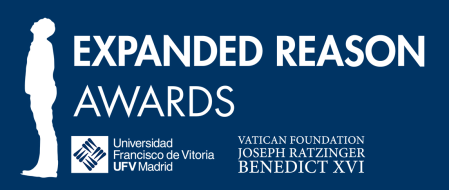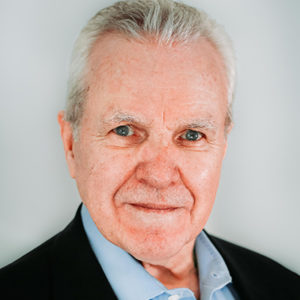Tagged: “Dr. Richard Fitzgibbons”
Dr. Robert Enright and Dr. Richard Fitzgibbons Receive 2019 International Research Award
Two members of the International Forgiveness Institute (IFI) Board of Directors have been selected to receive an international award recognizing their Forgiveness Therapy research. Dr. Robert Enright, founder of the IFI, and Dr. Richard Fitzgibbons, MD, Director of the Institute for Marital Healing just outside Philadelphia, PA, have been named the 2019 recipients of the Expanded Reason Award.

The prestigious award is presented annually by the University Francisco de Vitoria (Madrid, Spain) in collaboration with the Vatican Foundation Joseph Ratzinger/Benedict XVI (Rome, Italy) “to recognize and encourage innovation in scientific research and academic programs.”
Recipients (only two researchers are selected worldwide each year) are determined by an international panel of seven judges who examine books and journal articles to ascertain who across the globe is conducting innovative and exceptional research that cuts across the social sciences. The award criteria includes the challenge of establishing a dialogue of particular sciences with philosophy and theology in line with the thought of Pope Benedict XVI who led the Catholic Church from 2005 – 2013.

Dr. Richard Fitzgibbons
Drs. Enright and Fitzgibbons co-authored the book Forgiveness Therapy: An Empirical Guide for Resolving Anger and Restoring Hope. The book, published by the American Psychological Association (APA) in 2015, signifies that Forgiveness Therapy is now rightfully taking its place alongside such historically accepted therapies as Psychoanalysis, Humanistic Psychotherapy, and Cognitive Behavioral Therapy.
Forgiveness Therapy is actually a new and updated version of a previous book by Drs. Enright and Fitzgibbons, Helping Clients Forgive, that was published in 2000, also by the APA. The new 358-page volume helps clinicians learn how to recognize when forgiveness is an appropriate client goal and provides concrete methods for working forgiveness into therapy with individuals, couples and families. It is grounded in theology, philosophy, psychiatry, education and the social scientific method.
Dr. Fitzgibbons is a long-time research associate of Dr. Enright’s. Trained in psychiatry, he has worked with hundreds of couples over the past 40 years. His book, Habits for a Healthy ![]() Marriage: A Handbook for Catholic Couples, is available at Amazon.com.
Marriage: A Handbook for Catholic Couples, is available at Amazon.com.

Dr. Robert Enright
Dr. Enright, in addition to founding the IFI 25 years ago, has been a professor with the University of Wisconsin-Madison School of Education’s highly-regarded Department of Educational Psychology since 1978. He is the author or editor of seven books and more than 150 publications on social development and the psychology of forgiveness. He pioneered forgiveness therapy and developed an early intervention to promote forgiveness–the 20-step “Process Model of Forgiving.”
Both Dr. Fitzgibbons and Dr. Enright have been invited to attend and formally accept their awards at the Expanded Reason Awards Ceremony on Sept. 19, 2019 at the University Francisco de Vitoria in Madrid.
The Expanded Reason Awards recognize extraordinary teachers and researchers.
The Awards Ceremony is part of the 3-day International Expanded Reason Congress in Madrid that brings together university researchers and teachers from all over the world. The Congress seeks to deepen the dialogue among science, philosophy, and theology through presentations, roundtable discussions, and workshops. Dr. Fitzgibbons and Dr. Enright will be outlining the concepts behind their winning project in a talk that will also be published in the official proceedings of the Congress.♥
In my experience, I find that mental health professionals emphasize catharsis or “getting the anger off one’s chest.” I now am wondering if this is an incomplete approach to good treatment. What do you think?
Catharsis as the exclusive end in and of itself is not advised when the anger is deep and long-lasting. This is because the venting of anger does not cure the anger in the vast majority of cases. Taking some time to be aware of the anger, and the expression of it within temperate (reasonable) bounds in the short-run, can help the client to be aware of the depth of that anger. The cure for the anger, in other words the deep reduction in that anger, is forgiveness, shown scientifically to be the case (see Enright & Fitzgibbons, Forgiveness Therapy, 2015).
“CE Course Bridges Gap Between Forgiveness Theory and Theology”
Editor’s Note: We asked a recent graduate of our Online Forgiveness Education Course to tell us about his experience with the “Forgiveness Therapy” course. Here is the response from Randy Miota, Manager of Chaplaincy Services, Spectrum Health Lakeland, St. Joseph, MI, USA:
“This Forgiveness Therapy CE course has been one of the most challenging educational efforts I have been able to finish. ‘Finish’ in the sense that I completed the assignments. However, I refer back to the book and the chapter summaries when I run into situations that involve anger, and therefore (potentially) forgiveness.
“At first, I thought that I was most challenged by having to recall and remember the counseling and psychological concepts and practices that we learn and integrate into healthcare chaplaincy. Then, I realized that this non-theological approach to understanding and practicing forgiveness necessarily has to address some basic theological concepts – such as right and wrong, moral thought and action, and moral character that some will say points to the character of a transcendent God, etc.
“This course has also challenged me to face and to encourage others to face the painful interactional/social nature of how we live. Most of our hurts come from others, and facing that and trying to make that better takes work and courage. In other words, I hear so many people talk of having to forgive themselves for how they have failed themselves. I wonder if this is be a way of avoiding having to face the hurt, anger, and deep sadness that can be dealt with through courageous self-examination, confrontation with others, the willingness to risk disappointment and “non-closure,” and to keep growing and maturing.

Overall, as a healthcare chaplain and a clergy person, the Forgiveness Therapy course equips me to think about and to work with forgiveness in a practical way that bridges the gap between the theology and theory and the everyday need for many to start to do something more constructive with their anger.”
Forgiveness Therapy, the online CE Course, is based on the book by the same title written by psychologist Dr. Robert Enright and psychiatrist Dr. Richard Fitzgibbons, director of the Institute for Marital Healing outside Philadelphia, PA. The 15-lesson course was developed by Dr. Enright and Dr. Elizabeth Gassin, Professor of Educational Psychology at Olivet Nazarene University, Bourbonnais, IL. Although primarily designed for licensed psychologists, the course has also proven beneficial for ministers, psychiatrists, social workers, nurses, and other professional counselors who have completed it.
The International Forgiveness Institute is approved by the American Psychological Association to sponsor continuing education for psychologists. The International Forgiveness Institute maintains responsibility for this program and its content.
Learn more at Forgiveness Therapy.



